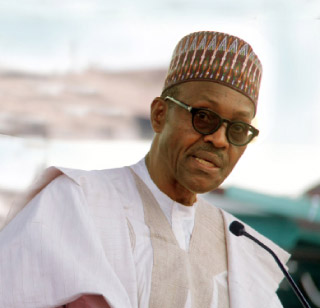Breaking News
Buhari’s Delay Unsettles Investors And Damaging Business Confidence In Africa’s Biggest Economy – Financial Times

The Financial Times is reporting when Muhammadu Buhari took office two months ago, hopes were high that the former general would act quickly to drag Nigeria out of the economic crisis he had inherited.
But the prolonged search by Nigeria’s new president for his cabinet and the relative silence on plans to tackle the tough economic outlook is unsettling investors and damaging business confidence in Africa’s biggest economy.
The perception of a fiscal policy vacuum is growing among Nigerians and foreign investors, both eager to see results from the man elected on his promises to rebuild a state rotted by corruption. The relative silence on plans to tackle the tough economic outlook has begun to hit optimism surrounding the first peaceful and constitutional transfer of power in Nigeria’s history.
“Investors are becoming more tentative and less committed and this is now affecting the level of economic activity,” says Bismarck Rewane, chief executive of Lagos-based investment consultants Financial Derivatives.
Mr Buhari’s announcement that he did not intend to appoint his cabinet until September further rattled observers.
Last week he explained the process is taking so much time because many qualified and experienced people with past government experience “have been compromised” in their past roles.
The sound logic of a careful selection process seems lost on the public and on international markets eager for a person — specifically a finance minister — to project the government’s priorities and to outline policies to reduce the pressures weighing on the fragile economy.
A lack of clarity from the new administration on key questions such as the future exchange rate policy is discouraging direct investment and financial inflows to Nigeria at a time when more hard currency is badly needed to maintain adequate import cover and prevent the naira from weakening more on the parallel market, say analysts.
“We’ve got a bit of a vacuum. The monetary policy is being set by the central bank but that can’t really control what’s happening in the rest of the economy. The missing element is the fiscal policy. We don’t know what spending is taking place and what the plans are for the new administration,” says Angus Downie, head of economic research at Ecobank.
Oil-dependent Nigeria has been suffering from rising inflation and shrinking foreign reserves since the oil price plummeted last year. Mr Buhari has launched corruption investigations to begin cleaning up the oil sector in Africa’s leading producer and he has made clear his government will be run in a more transparent manner. But in the absence of a cabinet, he has not yet signalled plans for economic reforms.
“For the market to be a little more secure and aware of what’s going on you would expect the finance minister to co-ordinate business day to day and to be the mouthpiece to the market,” says Mr Downie.
………………………………………………………………………………………………….READ MORE On The Financial Times






